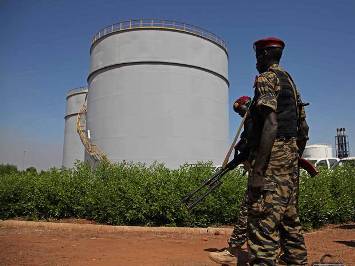South Sudanese army downplays rebel threats on oil fields
September 5, 2017 (JUBA) – A South Sudanese army (SPLA) official has downplayed threats from rebels, saying adequate security would be provided to oil workers operating in the oil field areas.

“We have the ability to defend the oil fields and there should be no reason for the rebels to think that they will disrupt oil production and compromise the facilities in the oil fields at this particular point when they have become more vulnerable,” the army spokesperson, Lul Ruai Koang told Xinhua on Tuesday.
“Those threats don’t carry any weight. They have been doing it to ensure continuation of economic sabotage,” he added.
The government, the official further stressed, has boosted security in the oil fields and that normal oil production is expected to continue.
Rebels had, in the past, issued such warnings to oil workers. In March this year, the rebels abducted a number of oil workers, but released them after negotiations involving the oil companies and the rebels.
South Sudan got the lion’s share of the oil when it split from Sudan in 2011, but it’s only export route is through Sudan. However, since its independence, the world’s youngest nation has relied on oil for all income, a situation that has significantly compounded ongoing political and economic instability due to the fall in crude oil prices.
According to South Sudanese officials, production in the past reached as high as 350,000 barrels per day (bpd), but fell after a dispute with Sudan over fees for pumping South Sudan’s crude through Sudan’s export pipeline, which led South Sudan to halt production in 2012.
Even after restarting production, it never recovered to those levels, but it dropped to 245,000 bpd after the outbreak of the civil conflict in South Sudan in 2013, hindering production in areas of the north.
(ST)
